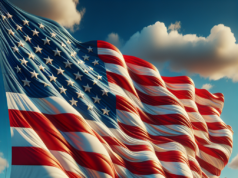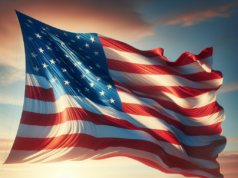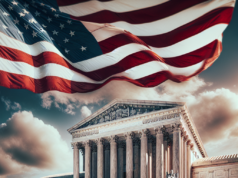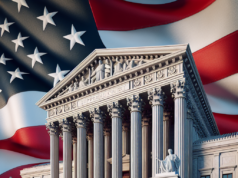
The Supreme Court of the United States has long served as a pivotal institution in the American legal system, interpreting the Constitution and shaping the nation’s laws. Throughout its history, landmark decisions have emerged from its chambers, often reflecting the social, political, and cultural currents of their times. These rulings have not only resolved specific legal disputes but have also had profound implications for civil rights, social justice, and the balance of power within the government. This article explores several landmark Supreme Court decisions that have significantly influenced American society and law, highlighting their historical context and lasting impact.
The Role of the Supreme Court in Shaping American Law and Society
The Supreme Court plays a crucial role in interpreting the Constitution and federal laws, serving as the highest court in the United States. Its decisions can affirm, overturn, or reinterpret existing laws, thereby influencing the legal landscape and societal norms. The Court’s power of judicial review, established in Marbury v. Madison (1803), allows it to invalidate laws and executive actions that it finds unconstitutional. This authority has made the Supreme Court a vital arbiter in contentious issues ranging from civil rights to economic regulations. As societal values evolve, the Court’s interpretations can reflect or resist these changes, often leading to significant shifts in public policy and individual rights. The decisions rendered by the Supreme Court not only affect the immediate parties involved but also set precedents that shape the legal framework for future generations.
Brown v. Board of Education: A Turning Point in Civil Rights and Education
Decided in 1954, Brown v. Board of Education marked a watershed moment in the American civil rights movement. The Supreme Court unanimously ruled that racial segregation in public schools was unconstitutional, effectively overturning the precedent set by Plessy v. Ferguson (1896), which upheld the “separate but equal” doctrine. The Court’s decision was grounded in the Equal Protection Clause of the Fourteenth Amendment, asserting that segregated educational facilities were inherently unequal and detrimental to African American children. This landmark ruling galvanized the civil rights movement, providing a legal foundation for subsequent challenges to segregation and discrimination. It not only transformed the educational landscape but also inspired broader efforts to dismantle systemic racism across various sectors of American life, laying the groundwork for future legislative advancements in civil rights.
Roe v. Wade: The Controversial Case That Redefined Reproductive Rights
In 1973, the Supreme Court’s decision in Roe v. Wade fundamentally altered the discourse surrounding reproductive rights in the United States. The Court ruled that a woman’s right to choose to have an abortion fell within the right to privacy protected by the Fourteenth Amendment. This landmark ruling effectively legalized abortion nationwide, striking down numerous state laws that restricted access to the procedure. Roe v. Wade ignited intense debate and polarization, becoming a focal point in the ongoing struggle over women’s rights and bodily autonomy. The decision has faced numerous challenges over the decades, with various states enacting laws aimed at undermining its core principles. Despite these challenges, Roe v. Wade remains a significant legal precedent, symbolizing the ongoing conflict between individual rights and governmental authority in matters of personal choice.
Obergefell v. Hodges: Legalizing Same-Sex Marriage Across the United States
The 2015 Supreme Court ruling in Obergefell v. Hodges represented a monumental victory for the LGBTQ+ rights movement, legalizing same-sex marriage nationwide. The Court held that the right to marry is a fundamental liberty protected by the Constitution, and that denying same-sex couples this right violated the Equal Protection and Due Process Clauses of the Fourteenth Amendment. This landmark decision not only affirmed the dignity and equality of same-sex couples but also catalyzed broader societal acceptance of LGBTQ+ rights. Obergefell v. Hodges marked a significant shift in American legal and cultural landscapes, challenging long-standing norms and paving the way for further advancements in civil rights. The ruling underscored the importance of the judiciary in addressing issues of equality and justice, reinforcing the notion that love and commitment should be recognized and celebrated, regardless of sexual orientation.
Citizens United v. FEC: The Impact of Money on Political Campaigns and Elections
In 2010, the Supreme Court’s decision in Citizens United v. Federal Election Commission dramatically reshaped the landscape of political campaign financing in the United States. The Court ruled that corporate funding of independent political broadcasts in candidate elections cannot be limited under the First Amendment, equating money with free speech. This controversial ruling led to the rise of Super PACs and a significant increase in the influence of money in politics, allowing corporations and wealthy individuals to exert unprecedented power over the electoral process. Critics argue that Citizens United has exacerbated political inequality, enabling a small number of affluent donors to dominate political discourse and undermine the democratic process. The decision has sparked ongoing debates about the role of money in politics, campaign finance reform, and the integrity of American democracy, highlighting the complex interplay between free speech and electoral fairness.
Shelby County v. Holder: Eroding Voting Rights Protections in Modern America
The 2013 Supreme Court decision in Shelby County v. Holder represented a significant setback for voting rights in the United States. The Court invalidated key provisions of the Voting Rights Act of 1965, specifically targeting the formula used to determine which jurisdictions were required to seek federal approval before making changes to their voting laws. The Court argued that the formula was outdated and unconstitutional, effectively dismantling federal oversight designed to protect against racial discrimination in voting. This ruling has led to a wave of state-level laws that critics contend disproportionately disenfranchise minority voters, raising concerns about voter suppression and the erosion of democratic principles. Shelby County v. Holder has reignited debates over the ongoing struggle for voting rights in America, underscoring the importance of vigilance in safeguarding access to the ballot for all citizens.
The Supreme Court’s landmark decisions have profoundly shaped the legal and social landscape of the United States, reflecting the nation’s evolving values and struggles for justice. From civil rights to reproductive freedoms, the Court’s rulings have not only resolved specific legal disputes but have also sparked broader societal movements and debates. As the nation continues to grapple with issues of equality, freedom, and justice, the role of the Supreme Court remains as critical as ever, serving as both a guardian of constitutional rights and a battleground for the ongoing quest for a more equitable society.































